“Sankhaninda: An Innovative Ode to Jyotiprasad Agarwala’s Legacy”
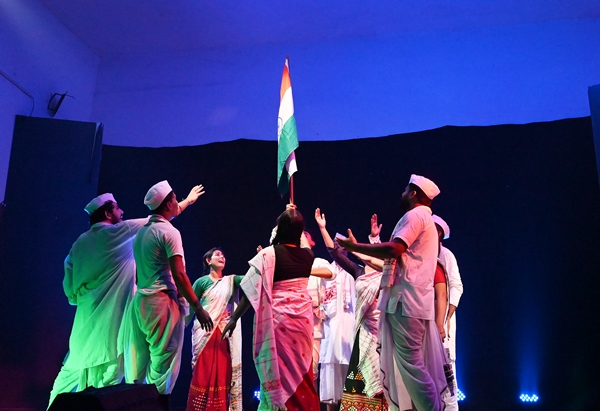
Dr Subrat Jyoti Neog’s latest play, Sankhaninda (The Chant of Conch), is not just an experimental endeavour interpreting the life and creative genius of Jyotiprasad Agarwala but a profound tribute to a man who was a renowned Assamese polymath – a poet, lyricist, playwright, composer, thinker, prose writer, music director, producer, and the creator of the first film from North East India. Despite his prolific creative journey, following Mahatma Gandhi’s principles, he plunged into the freedom struggle, faced imprisonment, later changed his stance, and joined the revolutionary group ‘Mrityu Bahini’ (Commando of Death). During the freedom movement days, he penned and composed numerous patriotic songs sung by volunteers, still resonating in the Assamese consciousness. His life and works continue to inspire and connect with us; this play is a testament to that.
Dr. Neog’s daring approach to Jyotiprasad’s spirit, philosophy, ambition, aspiration, determination, and ability to inspire others towards the noble cause of independence, as reflected in his writings, is a testament to his creative prowess. The play’s slender plot thread involving young artists rehearsing a musical based on Jyotiprasad’s works presented unconventionally is a masterstroke. The writer-director’s initial hesitation, fearing the public might not accept his avant-garde approach that defied prevailing norms, adds to the intrigue. Lost in thought, he suddenly envisioned Jyotiprasad appearing before him, engaging in a dialogue and debate. This discourse led them to explore Jyotiprasad’s life, and the playwright discovered his life and works’ inherent connection and amalgamation. The drama culminated on a positive note, encouraging creative souls.
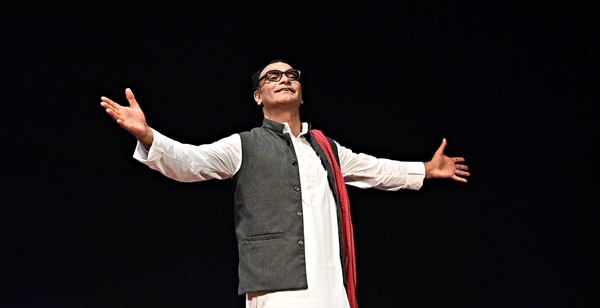
Dr. Neog had little dramatic material to use for writing the play, except for a few incidents from Jyotiprasad’s life. Most of the dialogues reflected Jyotiprasad’s thoughts, which Dr. Neog tried to dramatise. The dialogues were mainly taken from Jyotiprasad’s writings, allowing the audience to connect with the essence of the legend. He also added that Jyotiprasad wrote the tragic stories of Manbar and Tileshwari, emphasising that the lesser-known Assamese fighters who sacrificed for India’s freedom struggle should get proper recognition. These two stories injected a few dramatic moments into the play.
Sangeet Natak Academi awardee Gunakar Dev Goswami directed the play, facing a challenge due to the stage’s limited facilities and the content’s non-traditional dramatic elements. However, his extensive experience helped overcome the stage-related limitations. Goswami portrayed Jyotiprasad himself and gave a believable performance. As a socio-cultural icon revered in Assamese hearts and minds, describing such a sensitive and respected character demanded great reverence from the actor, a quality Gunakar Dev Goswami demonstrated. Nevertheless, he could have added more vocal variation to his dialogue delivery.
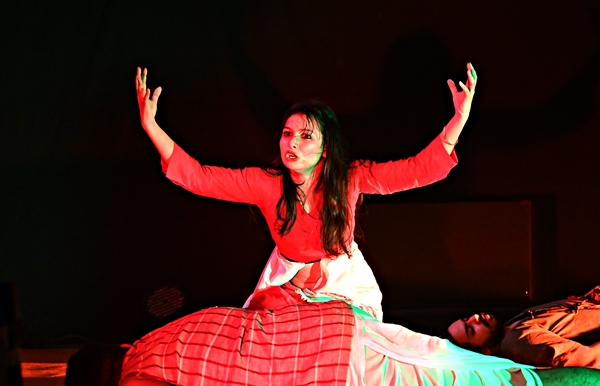
The most creative aspect of the direction was the innovative presentation of Jyotiprasad’s songs and poems. Goswami, who also composed the music, preserved the original texts and tunes but creatively utilised the songs to enhance the presentation, adding variety. Such creative endeavours inject vibrancy into tradition and encourage the younger generation to explore our heritage curiously. This innovative writing and presentation approach made the production so successful.”








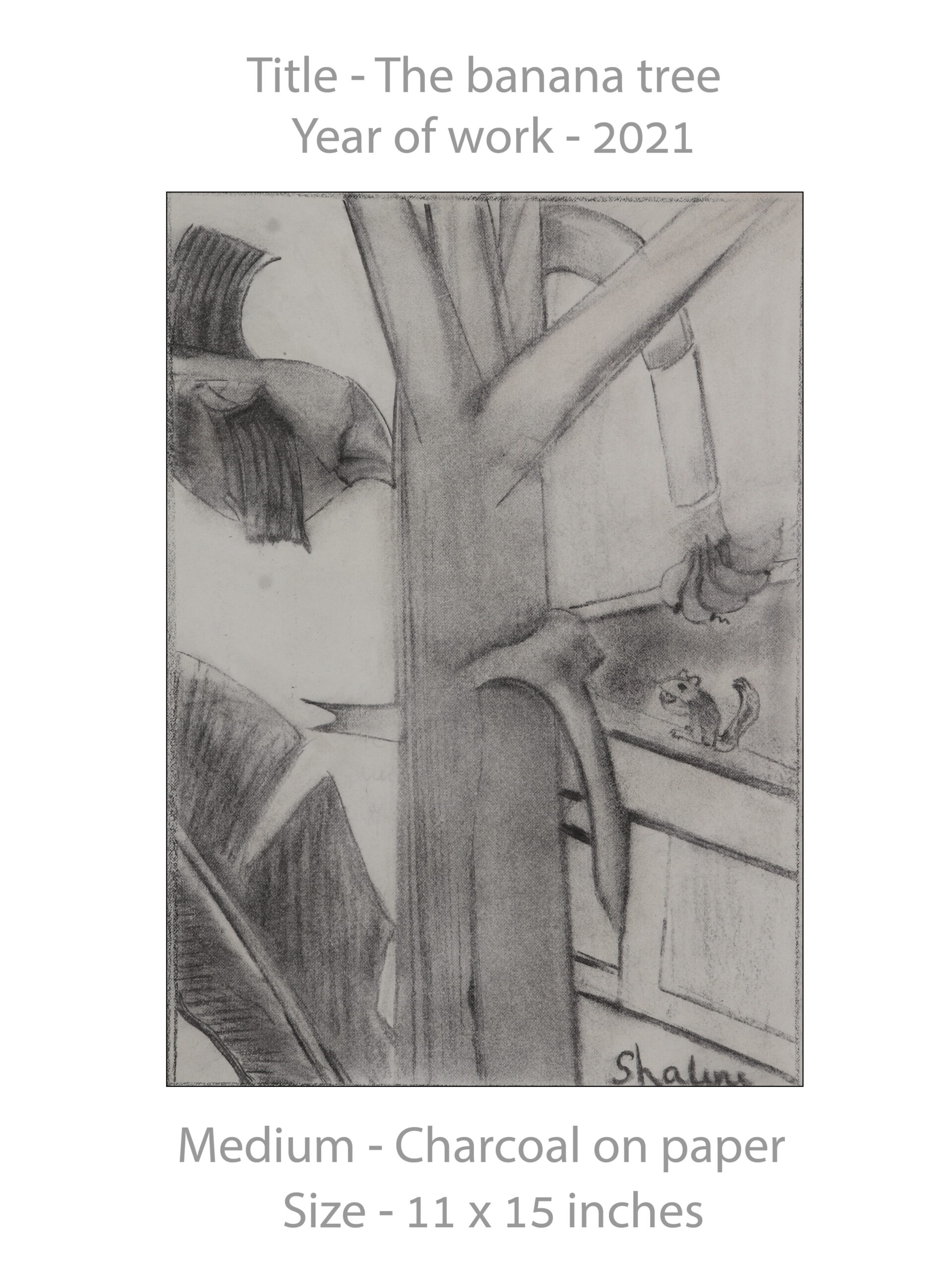
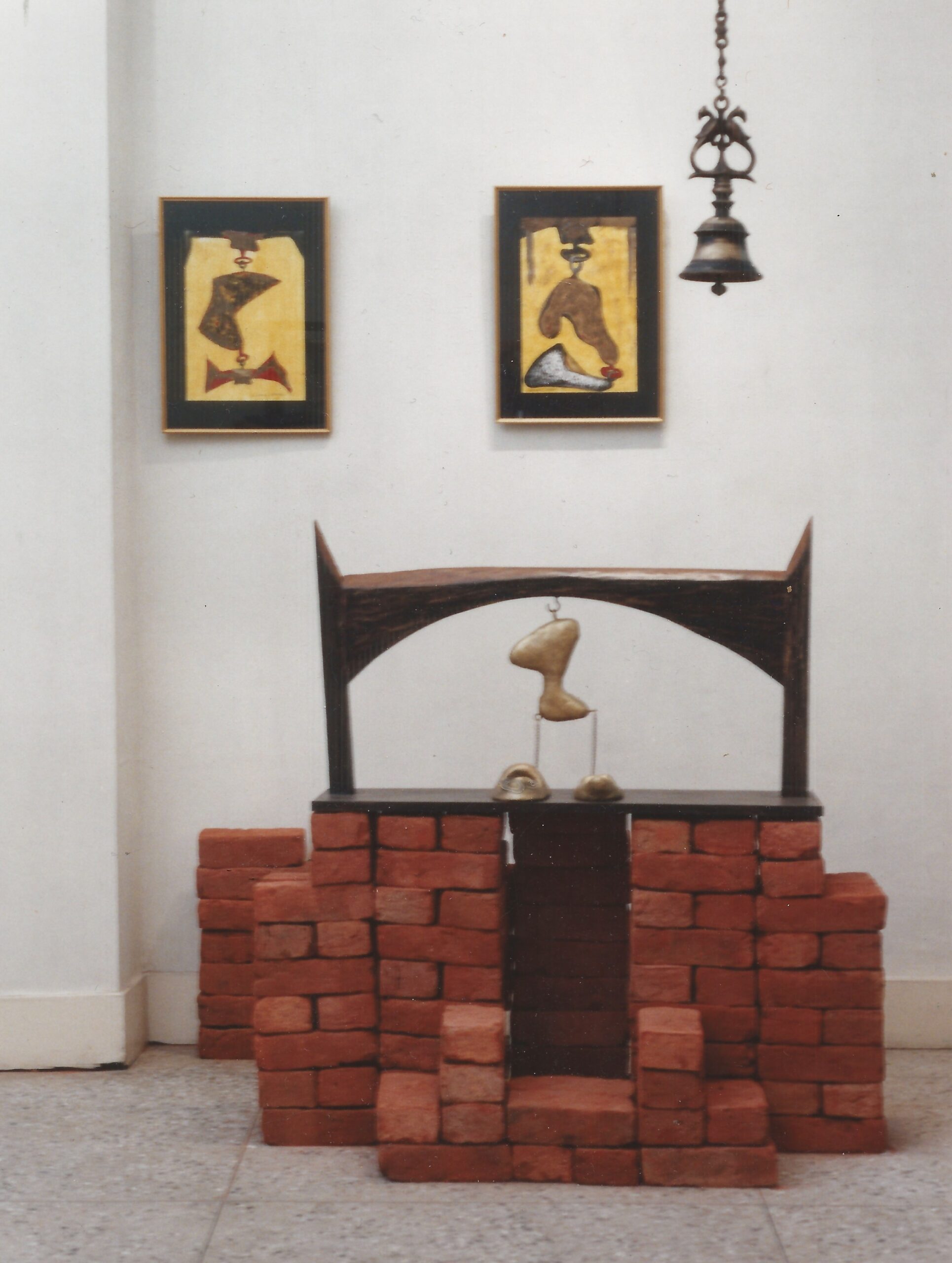
Mr Utpal Dutta could have perhaps given an introduction to his readers, citing by way of examples, the nature of the thoughts and writings of Shri Jyoti Pradad – to help a better understanding of the central theme of the play – shall we say, the contents of the values championed and projected to follow and cherish, in emulation. Surely, every play carries a purpose and an aim to convey to the uninformed.
Thanks for your valuable inputs. I will try to write an article on the significant contributions of jyotiprasad